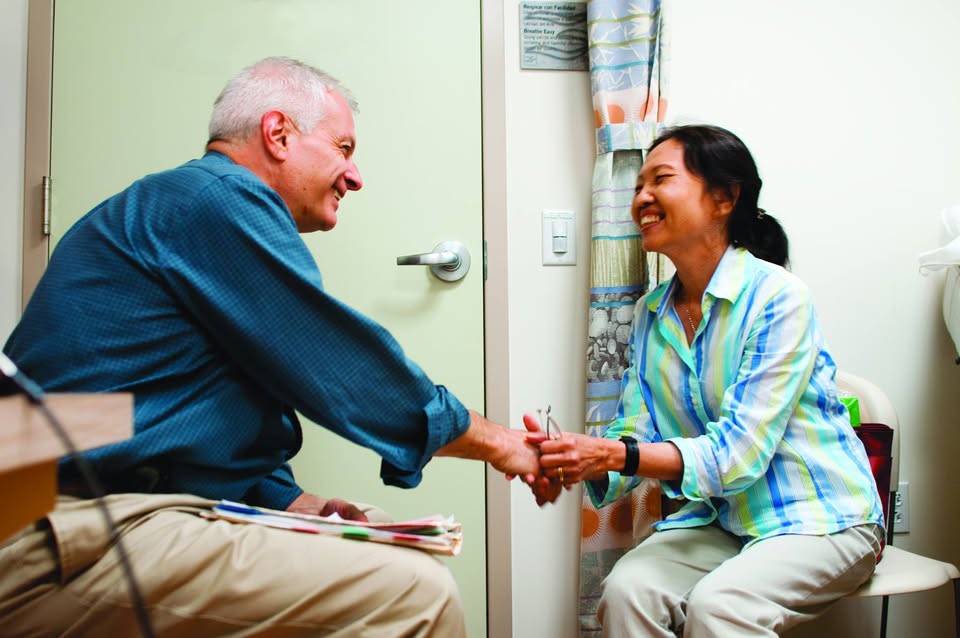
It has always been part of the model at Arlington Free Clinic to be tuned in and responsive to the non-medical needs of our patients. From our very early days, it was part of the role of a nurse manager at AFC to listen for needs “beyond the exam room” and do what you could to alleviate by offering resources for supplemental food or eviction assistance, for example, in between blood pressure readings and flu shots.
In 2018, we embarked on a significant shift towards addressing our patients’ SDOH needs in a more systematic and intentional way. Thanks to the support of Northern Virginia Health Foundation, a collaborative effort was established between Arlington Free Clinic, the VHC Health Outpatient Clinic, Neighborhood Health Pediatrics (formerly VHC Health Pediatrics), and Arlington County DHS Maternal & Child Health. Together, these partner clinics developed a SDOH screening tool that has enabled us to collect and analyze deidentified data on our patients’ nonmedical needs, and use this information to advocate for enduring, systemic changes that promote the broader health and well-being of our community. To make this information accessible for patient care, VHC Health and AFC worked to bring the SDOH screening tool into our shared EHR system (Epic).
This year marks a pivotal moment as we leverage the integration of our SDOH screening tool in Epic to give clinicians easy access to information regarding patients’ social needs. Previously, our EHR did not incorporate patients’ responses to questions related to financial concerns, transportation barriers, housing instability, and food insecurity – or areas such as physical activity levels and social connections. With this vital information now embedded in the EHR, it can be readily accessed to inform clinicians’ evaluations of patients’ whole-health needs and guide the development of more patient-centered plans of care.
While our clinicians have always been aware of the impact of non-medical factors on their patients’ health, easier access to this information allows them to see a more complete picture – and actively engage in collecting and utilizing the information. Furthermore, the integration of this data into Epic facilitates its sharing beyond the walls of AFC to encompass all members of a patient’s care team, whether at VHC or any other Epic facility where care is provided. This fosters continuity and maximizes the impact of our efforts to address SDOH within our community.









